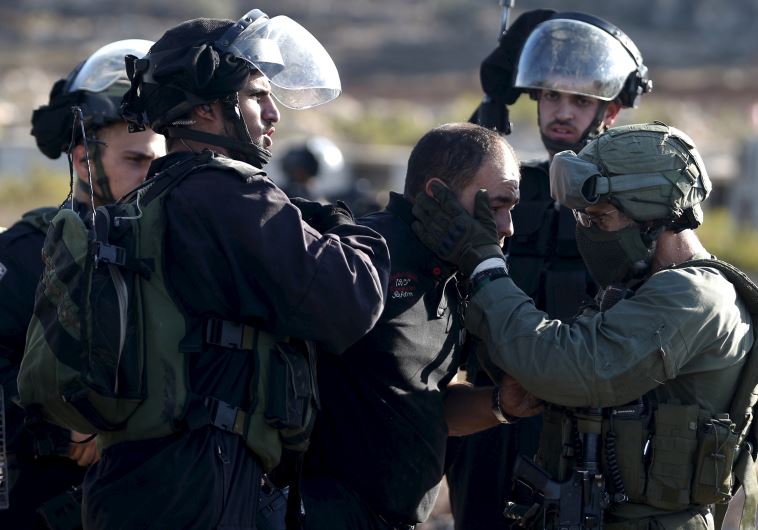Analysis: How current violence fizzles debate over national security vs civil liberties
Knesset panel this week unanimously voted in favor of country’s controversial emergency law with its unusual limitations on detainee rights.
 Israeli policemen detain a Palestinian protester during clashes near the Jewish settlement of Beit ElUpdated:
Israeli policemen detain a Palestinian protester during clashes near the Jewish settlement of Beit ElUpdated: